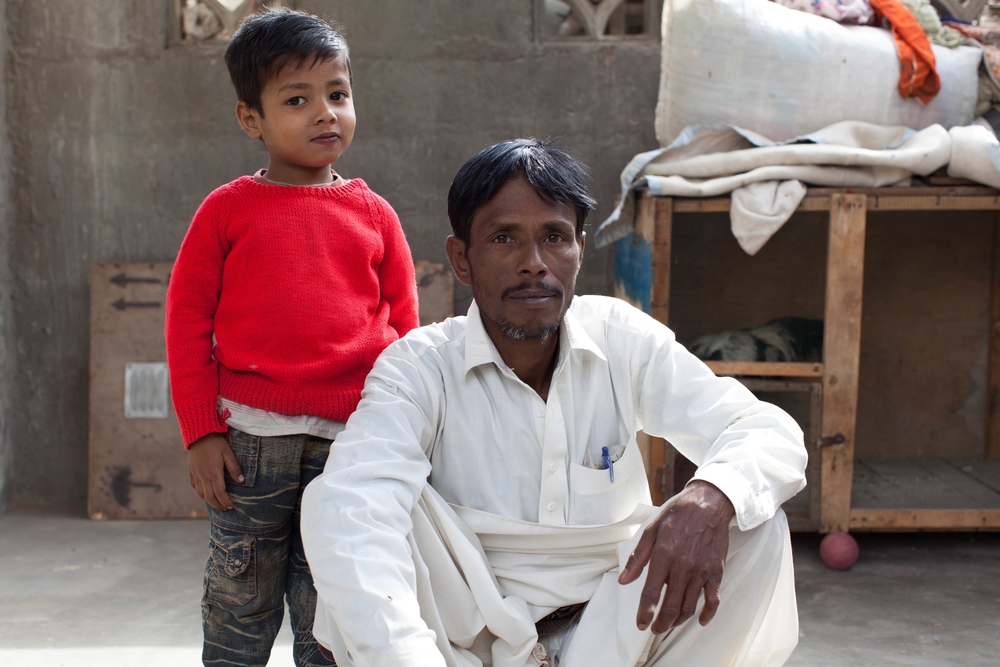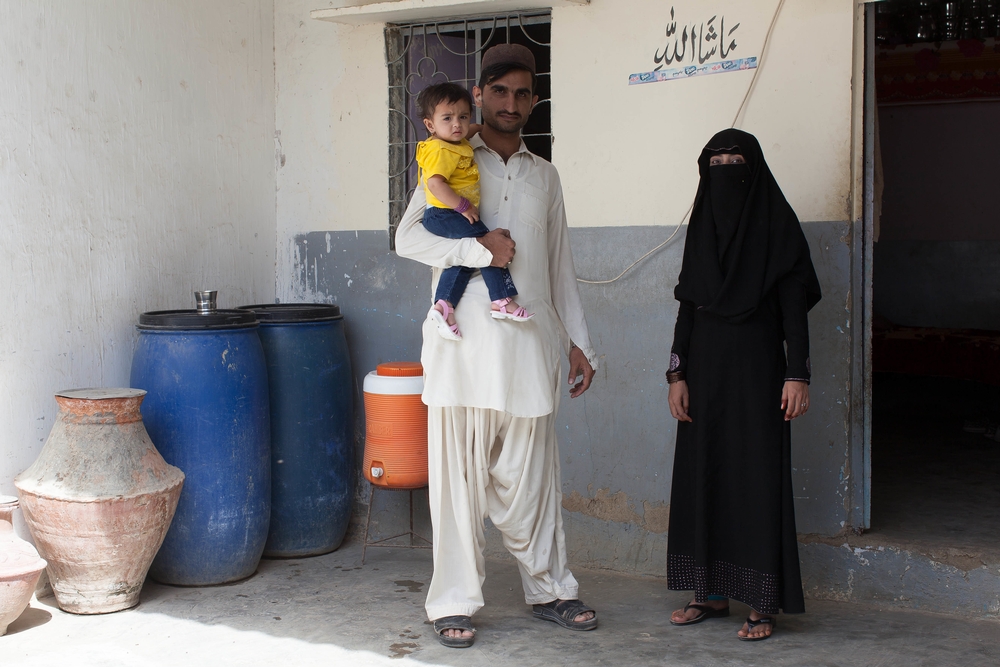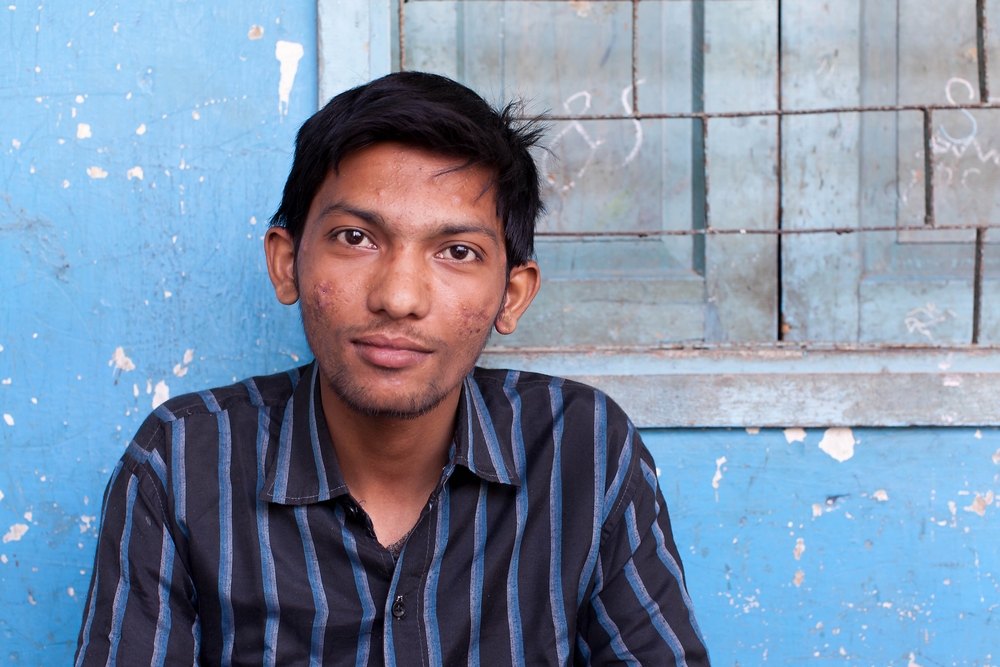Doctors Without Borders/Médecins Sans Frontières (MSF) started treating hepatitis C in Karachi, Pakistan's Machar Colony slum not just because of the area's poor health system, but also because many people there couldn't otherwise afford testing and treatment. By providing care at a primary health care clinic, patients can access free diagnosis and quality treatment without having to travel to a hospital, a journey that for many is prohibitively expensive. The current project is a pilot to show that this model of decentralized care can be effective. Around 400 patients will receive treatment from MSF this year. Learn more.

Noor Alam is the first patient to be cured of hepatitis C at MSF’s Machar Clinic in Karachi. He lives with his wife and six children in a rented house midway down a narrow ally in the slum. Approximately seven years ago, Noor Alam started to experience severe pain in his body. He went to a local clinic for tests and discovered he had contracted hepatitis C. To sustain the costly treatment he subsequently had to sell his house, but the series of treatments was not successful. Despite facing financial ruin and with a young family to feed, Noor Alam was not cured after two courses of treatment. His situation started to deteriorate. As a migrant from Bangladesh, Noor Alam does not have access to advanced medical treatment in the government health system.
Last year, Noor Alam heard about the MSF clinic in Machar Colony. He visited the clinic and was soon after enrolled in the treatment program. While he was going through treatment, he had to send his eldest three children to work in the shrimp peeling market so that the family would be able to afford food for the day. The girls were unable to continue their education because of this. One bucket of shrimp can take up to one hour to peel, generating just 20 Pakistani rupees ($0.19). They work for a minimum of six hours a day. Noor Alam’s eldest son is still attending the local school. He wishes for his son to be educated and to be able to build a future away from fishing. To Noor Alam’s delight he is now cured of hepatitis C.

Kulsoom, 20 years old, just completed her treatment for hepatitis C and is now cured of the disease. Kulsoom has been married for three-and-a-half years to Ajab. They have an 18-month-old daughter, Rumaissa. Ajab’s father passed away three years ago from hepatitis C.
Ajab is one of eight siblings: he has four brothers and three sisters. The younger three are still studying and it is the older two who support the entire household. Hepatitis C took their father at a young age and left the burden of the family on the elder two’s shoulders. Therefore, when Ajab learned that Kulsoom also had hepatitis C it was alarming for the entire family. "We all just wanted her to be cured," says Ajab.
Ajab has supported his wife unequivocally during her treatment and is ecstatic that her treatment is complete and she is cured of hepatitis C. He says he hopes that MSF will expand its program to accommodate more people.

Nabi Alam, 19 years old, lives in Bengali Para, Machar Colony, and has three brothers and three sisters. He works as a science teacher at the government school in Machar Colony, teaching chemistry, biology, and physics. Nabi Alam had planned to continue his education in medicine abroad in China. As part of the application process it was mandatory for him to have a medical checkup, which is how he discovered he had hepatitis C.
Nabi’s dream of attaining his bachelor of medicine degree was temporarily put on hold. When Nabi showed the test results to his father, he was told that he may have been passed the virus during his mother’s pregnancy.
The MSF outreach team informed Nabi that treatment was available at the Machar Colony Clinic. Nabi’s treatment commenced and it seems that it is having positive results. However, he has decided to change his plan and not leave the country, and will instead launch an initiative called "The Light of Knowledge." After his day job at school, Nabi helps teach some 400 local children who otherwise have no access to a classroom.

Tahira, 41, is married and has two children – a nine-year-old son and an eight-year-old daughter. They live in an alley in Madina Colony, Baldia Town, where some of their relatives also live, including their grandparents.
Nine years ago Tahira discovered she had contracted hepatitis C. She went through two six-month courses of treatment, consisting of injections that caused extreme side effects. During this time her children were looked after by her extended family, who live close by.
During Tahira’s second course of treatment her husband, who is employed in a workshop, was unable to maintain the costly injections she required. It was at this time that she heard of the MSF clinic in Machar Colony, and she then started her third course of treatment there.
"I was beautiful before, I had clear skin. This illness has aged me, but had it not been for MSF I could have lost my life, and that would have been much worse for my children."
She took the initiative to have all her immediate and extended family checked for the virus too. Her younger sister Saira also had hepatitis C; she was pregnant at the time. Unfortunately Saira lost her baby days after her birth.
MSF in Pakistan
MSF began working in Pakistan in 1986 and now provides urgently needed medical care to people in Balochistan, Khyber Pakhtunkhwa, the Federally Administered Tribal Areas (FATA), and Sindh. MSF’s activities in Pakistan are funded solely by donations from individuals, with no institutional or government contributions.




